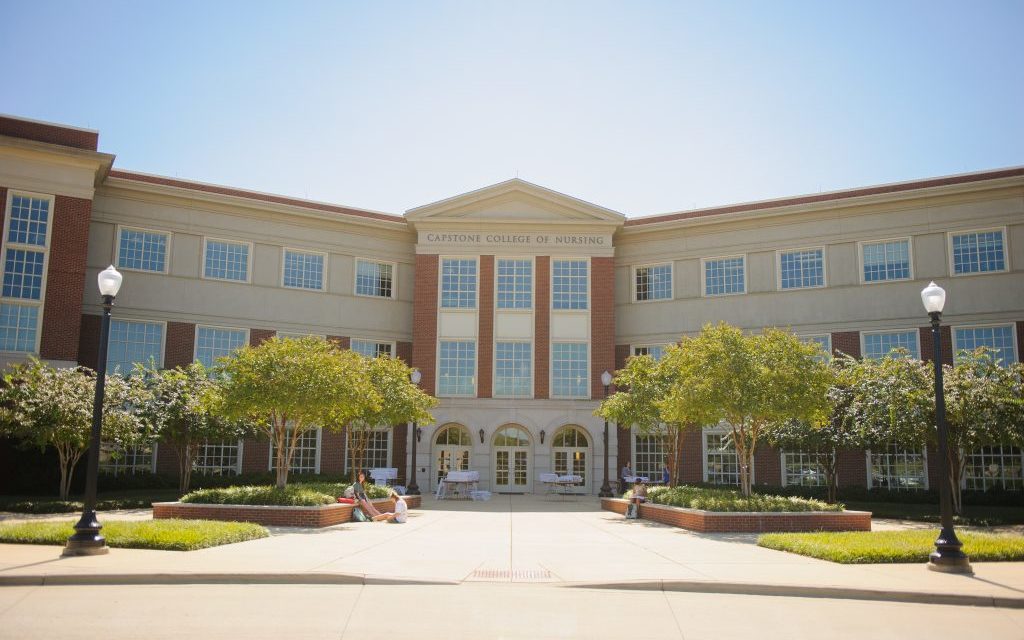A News (University of Alabama)
July 6, 2017 —
TUSCALOOSA, Ala. — The University of Alabama’s Capstone College of Nursing recently received a $1.7 million grant to increase the number of baccalaureate-prepared Latino nurses.
Funded by the Health Resources and Services Administration Nursing Workforce Diversity Program, the Bama-Latino Project will target and recruit 80 Latino associate degree registered nurses and prepare them for a Bachelor of Science in nursing via the Capstone College of Nursing’s online RN-BSN mobility program.

Dr. Norma Ceullar, UA professor of nursing. (CW | Amy Sullivan)
“Right now, the RN population is made up of 83 percent white/Caucasian nurses who are caring for a very diverse population,” said Dr. Norma Cuellar, UA professor of nursing and principal investigator. “While we teach our students about cultural sensitivity, we know that many times when people are being cared for by someone who is not like them, there is a barrier that may impact health care outcomes.
“Sometimes it’s communication, sometimes it’s cultural. Both can pose a problem in delivering health care.”
In recent years, there has been a national push to increase the diversity of the nursing workforce to better reflect the population of the U.S., but there has not been much success with Latino nurses. Latinos make up 17.3 percent of the population, but fewer than 5 percent of U.S. nurses are Latino, Cuellar said.
There are several reasons why Latinos are not pursuing nursing. Many do not receive the academic support needed while in junior high and high school, so they do not meet the criteria to get into a highly competitive nursing program, Cuellar said. There are also financial barriers that keep many of them from pursuing a baccalaureate or an advanced degree.
“Our health care is changing with an increasing need for nurses with advanced educational preparation,” Cuellar said. “We need nurses to work where the shortages are in the community — public health, case management, telemedicine — and in roles as nurse practitioners, midwives, nurse anesthetists and educators. Latino nurses need to come back to school and earn bachelor’s and master’s degrees to fulfill roles where shortages exist.”
The Bama-Latino Project will support Latino nurses by providing scholarships for pre-entry preparation and the RN-BSN bridge program. The program also provides both academic and professional mentorship and support through a collaborative partnership with the National Association of Hispanic Nurses, of which Cuellar is the president-elect.

Anabell Castro Thompson, President of the National Association of Hispanic Nurses
“Increasing the number of Hispanic nurses with baccalaureate degrees is about more than just promoting academic progression for our members; it is also about improving patient outcomes,” said Anabell Castro-Thompson, president of the National Association of Hispanic Nurses.
“NAHN is excited to partner with the Capstone College at The University of Alabama to increase the number of culturally competent nurse leaders. This funding provides us with a unique opportunity to leverage our mutual resources and shared mission to eliminate financial barriers associated with attaining higher degrees and promote a more highly qualified and diverse nursing workforce.”
Cuellar hopes once the students finish their bachelor’s degrees in nursing they will continue their education and pursue masters and even doctoral degrees in nursing.
The College will be recruiting at least 20 students per year for the next four years. The first group will start in the fall and graduate December 2018. Applicants must have graduated from an accredited associate degree nursing program, be in good standing with their licensure and be a member of the National Association of Hispanic Nurses.
“I am really excited to see the impact this is going to have,” Cuellar said. “Even if only one Latino student is encouraged to continue their education and get their master’s degree, that will be a victory.”









